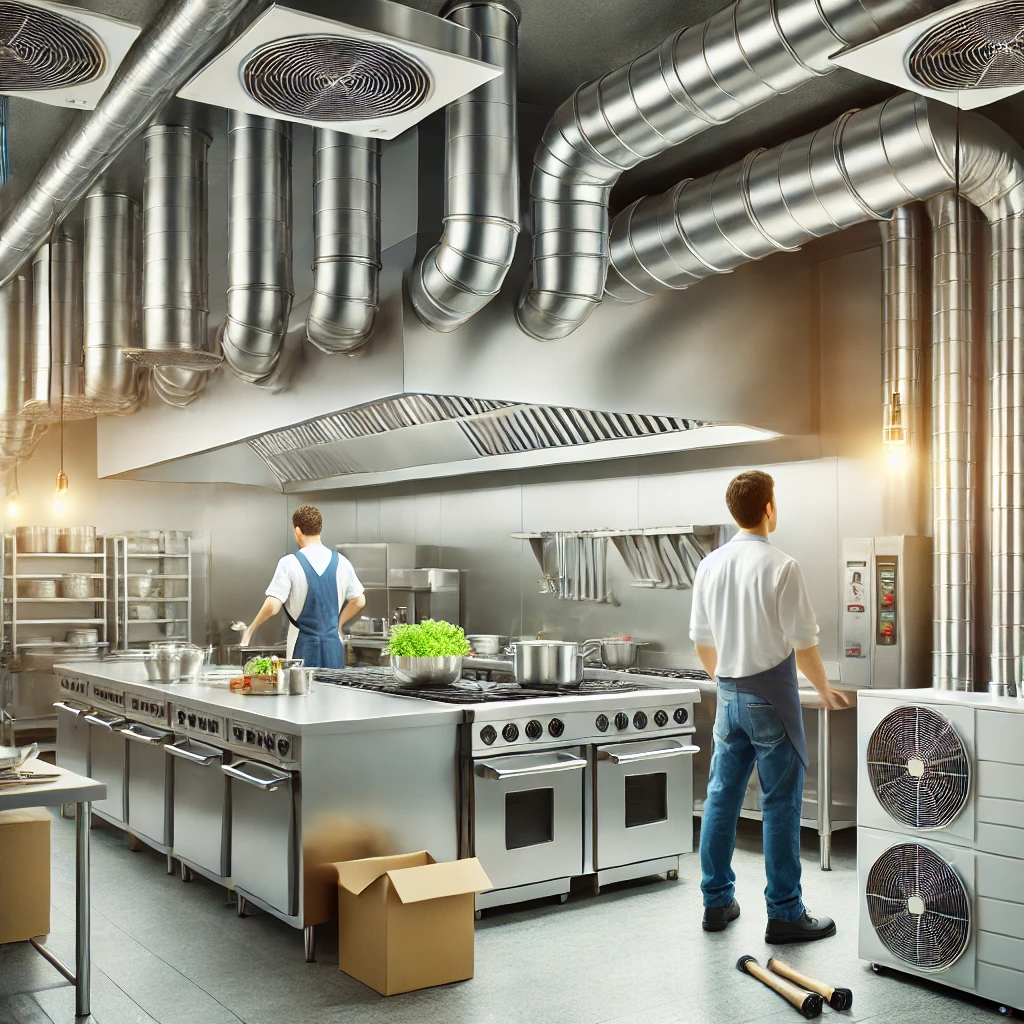14 Jun How to Choose the Right HVAC System for Your Commercial Kitchen
Choosing the right HVAC system for your commercial kitchen is crucial for maintaining a comfortable, safe, and compliant working environment. An effective HVAC system not only improves air quality and temperature control but also enhances energy efficiency and reduces operational costs. This guide will help you understand the key factors to consider when selecting an HVAC system for your commercial kitchen.

Factors to Consider When Selecting a Commercial Kitchen HVAC System
1. Kitchen Size and Layout
- Assess the Space: The size and layout of your kitchen play a vital role in determining the capacity and type of HVAC system required. A larger kitchen will need a more powerful system to ensure adequate air circulation and temperature control.
- Zoning: Consider dividing your kitchen into zones with separate HVAC controls for each area. This allows for more precise temperature regulation and can improve energy efficiency.
2. Ventilation Requirements
- Proper Ventilation: Ensure the HVAC system can provide adequate ventilation to remove smoke, steam, and cooking odors. Proper ventilation is essential for maintaining air quality and preventing the buildup of harmful contaminants.
- Hood and Ductwork: Invest in high-quality hoods and ductwork that meet industry standards such as DW 172 and DW 144 specifications. These components are critical for efficient ventilation and compliance with health regulations.
3. Energy Efficiency
- Energy-Saving Features: Look for HVAC systems with energy-saving features such as variable speed fans, programmable thermostats, and high SEER (Seasonal Energy Efficiency Ratio) ratings. Energy-efficient systems reduce operational costs and have a smaller environmental footprint.
- Incentives and Rebates: Check for available incentives and rebates for installing energy-efficient HVAC systems. These can help offset the initial investment cost.
4. Regulatory Compliance
- Health and Safety Standards: Ensure the HVAC system complies with local health and safety regulations. Non-compliance can lead to fines and operational disruptions.
- Inspection and Certification: Regularly inspect and certify your HVAC system to ensure ongoing compliance and optimal performance.
Benefits of High-Efficiency HVAC Systems for Commercial Kitchens
- Cost Savings: High-efficiency HVAC systems can significantly reduce energy bills, saving your business money in the long run.
- Improved Air Quality: Better air filtration and ventilation improve indoor air quality, creating a healthier environment for staff and customers.
- Environmental Impact: Energy-efficient systems reduce your kitchen’s carbon footprint, contributing to sustainability efforts.
Professional Installation: Ensuring Optimal Performance
- Qualified Contractors: Hire experienced HVAC contractors who specialize in commercial kitchen installations. Proper installation is crucial for the system’s performance and longevity.
- Maintenance Plans: Invest in a regular maintenance plan to keep the HVAC system running efficiently. Routine maintenance helps prevent breakdowns and extends the system’s lifespan.
Conclusion
Choosing the right HVAC system for your commercial kitchen involves careful consideration of various factors, including kitchen size, ventilation needs, energy efficiency, and regulatory compliance. By selecting an appropriate system and ensuring professional installation, you can enhance the comfort, safety, and efficiency of your kitchen environment.



Sorry, the comment form is closed at this time.